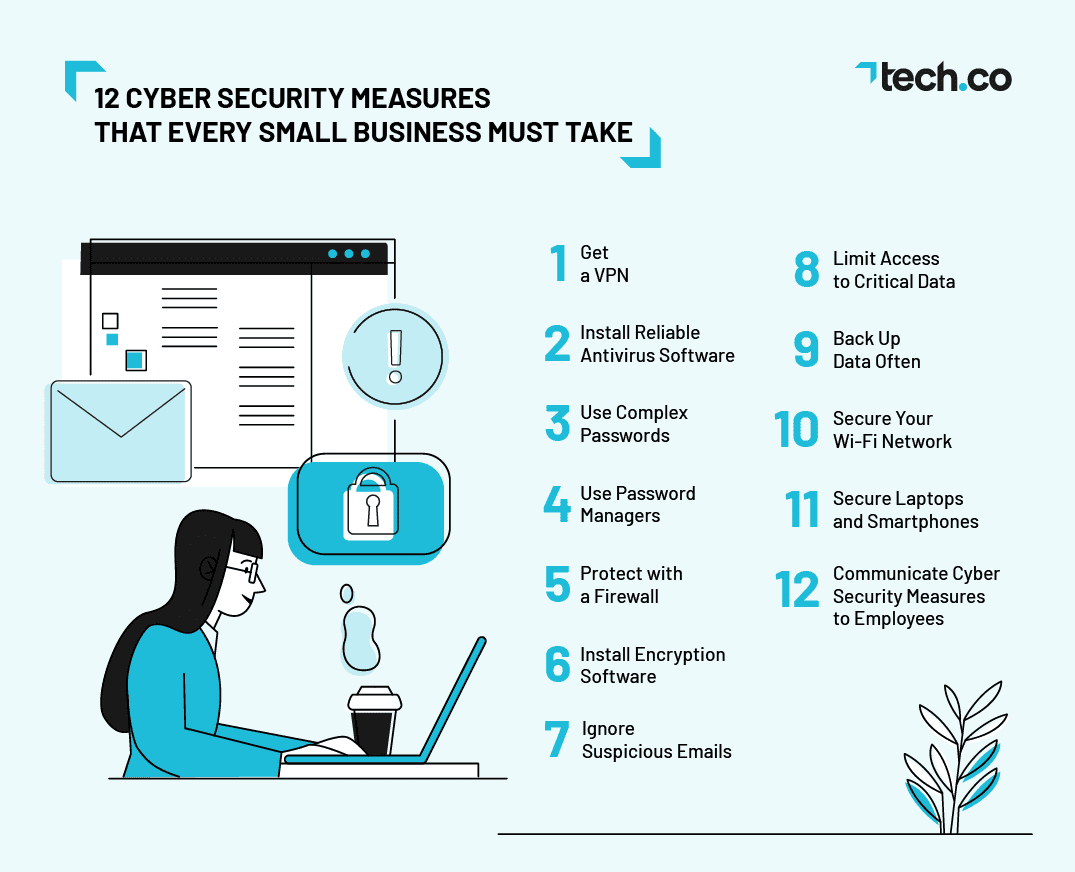As the digital transformation rapidly accelerates, cybersecurity is becoming increasingly important. With sophisticated cybercriminals using advanced techniques to breach networks and steal sensitive information, it is important that every company take proactive measures to protect their assets and reputation. This article provides ten cybersecurity measures that companies can take to enhance their security posture and protect against cyber threats in 2021 and beyond. These measures include conducting regular risk assessments, training employees, enforcing a strong password policy, implementing multi-factor authentication, upgrading software and systems, implementing data backup and recovery, limiting access to sensitive information, monitoring and analyzing network activity, conducting regular penetration testing, and partnering with a cybersecurity expert.
Introduction:
As the digital transformation accelerates, cybersecurity becomes more critical than ever. Cybersecurity threats are evolving rapidly and cybercriminals are using advanced techniques to breach the security of networks and steal sensitive information. In 2020, the world witnessed an unprecedented surge in cyber attacks, and it is expected that the trend will continue in 2021. Therefore, every company should take proactive measures in cybersecurity to protect their assets and reputation.
1. Conduct Regular Risk Assessment:
The first step in cybersecurity is to identify potential threats and vulnerabilities. Companies should conduct regular risk assessments to evaluate their security posture and identify areas that need improvement. A risk assessment will help companies understand their assets, their value, and the potential impact of a cybersecurity incident.
2. Train Employees:
Employees can be the weakest link in the cybersecurity chain. Therefore, companies should conduct regular training sessions to educate employees on cybersecurity best practices. Employees should be trained on how to identify phishing scams, create strong passwords, and secure their devices.
3. Implement a Strong Password Policy:
Passwords are the first line of defense against cyber attacks. Companies should enforce a strong password policy that requires employees to use complex passwords that include uppercase and lowercase letters, numbers, and symbols. Passwords should also be changed every 90 days and should not be shared or reused.
4. Use Multi-Factor Authentication:
Multi-factor authentication (MFA) adds an extra layer of security by requiring users to provide two or more forms of identification to access a system or application. MFA can prevent unauthorized access even if a password is compromised.
5. Upgrade Software and Systems:
Software and systems should be upgraded regularly to ensure that they are patched with the latest security updates. Outdated software and systems can be easily exploited by cybercriminals to gain unauthorized access.
6. Implement Data Backup and Recovery:
Data backup and recovery are essential to protect against data loss due to cyber attacks or natural disasters. Companies should implement a data backup and recovery plan that includes regular backups and testing of the recovery process.
7. Limit Access to Sensitive Information:
Access to sensitive information should be limited to employees who need it to perform their job duties. Access should be granted based on the principle of least privilege, which means that employees should only have the minimum level of access needed to perform their job duties.
8. Monitor and Analyze Network Activity:
Companies should monitor their network activity to identify suspicious behavior and potential threats. Network activity logs should be analyzed regularly to detect anomalies and address them proactively.
9. Conduct Regular Penetration Testing:
Penetration testing is a simulated cyber attack that is conducted to identify vulnerabilities in a company’s systems and applications. Regular penetration testing can help companies identify weaknesses and improve their security posture.
10. Partner with a Cybersecurity Expert:
Finally, companies should consider partnering with a cybersecurity expert to develop and enhance their cybersecurity strategy. A cybersecurity expert can provide guidance on best practices, conduct risk assessments, and implement solutions that are tailored to the company’s needs.
Conclusion:
Cybersecurity is not a one-time effort, but an ongoing process that requires continuous monitoring, assessment, and improvement. Implementing these 10 cybersecurity measures will help companies enhance their security posture and protect against cyber threats in 2021 and beyond.
